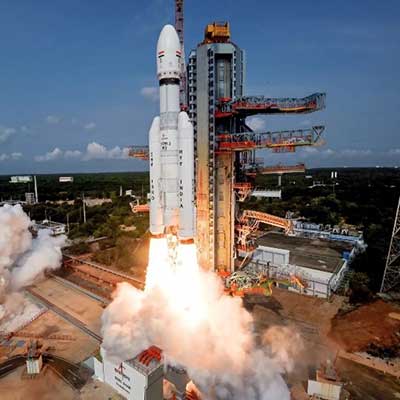Date: 22/04/2023
Relevance: GS-3: Awareness in the fields of Space
Key Phrases: Indian Space Policy-2023, non-government entities, Commercial Recovery of Space Resources, Director General Indian Space Association, Indian National Space Promotion and Authorisation Centre, NewSpace India Limited.
Why in News?
- On April 20, 2023, the Indian Space Policy-2023 was made public, with a focus on research and development of advanced technologies.
Encouragement for NGEs:
- The policy allows non-government entities (NGEs) to offer national and international space-based communication services, operate ground facilities for space object operations, and engage in end-to-end activities in the space sector.
- The policy encourages NGEs to establish and operate ground facilities for space object operations, including telemetry, tracking, and command (TT&C) Earth Stations and Satellite Control Centres (SCCs).
- The policy also allows NGEs to undertake end-to-end activities in the space sector through the establishment and operation of space objects, ground-based assets, and related services such as communication, remote sensing, and navigation.
- NGEs are also encouraged to use Indian orbital resources and/or non-Indian orbital resources to establish space objects for communication services over India and outside.
- The policy also encourages NGEs to manufacture and operate space transportation systems, including launch vehicles, and shuttles, as well as design and develop reusable, recoverable, and reconfigurable technologies and systems for space transportation.
Commercial Recovery of Space Resources:
- The Indian Space Policy-2023 also permits NGEs to engage in the commercial recovery of an asteroid resource or a space resource.
- Any NGE engaged in such a process shall be entitled to possess, own, transport, use, and sell any such asteroid resource or space resource obtained in accordance with applicable law, including the international obligations of India.
ISRO’s role:
- Focuses on R&D:
- The Policy states that ISRO, as the national space agency, will focus primarily on the research and development of new space technologies and applications and on expanding the human understanding of outer space.
- To achieve this goal, ISRO shall carry out applied research and development of newer systems so as to maintain India's edge in the sector in the areas of space infrastructure, space transportation, space applications, capacity building, and human spaceflight.
- Transitioning from Operational Space Systems:
- The Policy states that ISRO shall transition out from the existing practice of being present in the manufacturing of operational space systems.
- Mature systems shall be transferred to industries for commercial exploitation.
Distribution of Responsibilities:
- Indian National Space Promotion and Authorisation Centre (IN-SPACe):
- IN-SPACe will provide authorizations to both government bodies and NGEs for space activities, such as the establishment and/or operation of space objects, the launch of rockets, the establishment of launchpads, planned re-entry of space objects, and so on.
- It will work with space sector-centric industry clusters, work towards establishing India as a preferred service provider for foreign requirements of products and services, and work with academia to enable industry-academia linkages.
- It will also define frameworks for developing space industry standards, based on global standards.
- IN-SPACe will authorize the use of space objects for communication/broadcast services in coordination with the departments concerned.
- It will ensure a level playing field for the utilization of all facilities created using public expenditure, by prioritizing their use among Government entities and NGEs. For this, IN-SPACe will formulate appropriate procedures for prioritization, and the decisions of IN-SPACe shall be binding on the operators of such facilities.
- It will incentivize NGEs that acquire new orbital resources through filings in the UN’s International Telecommunication Union (ITU)
- New Space India Limited (NSIL):
- It will be responsible for commercializing space technologies and platforms created through public expenditure.
- It will also manufacture, lease, or procure space components, and service the space-based needs of users.
- Department of Space:
- It shall oversee the distribution of responsibilities outlined in this policy and ensure that the different stakeholders are suitably empowered to discharge their respective functions without overlapping into the others' domains.
- DoS will also be responsible for ensuring the sustenance of existing and future satellite constellations and ground segments.
- It will also establish a framework to ensure safe and sustainable space operation, in compliance with relevant international space debris mitigation guidelines.
Conclusion:
- The Indian government's space sector reforms in 2020, culminating in the Indian Space Policy-2023, mark a significant milestone in the country's efforts to foster private participation and advance the development of advanced space technologies.
- The policy's futuristic vision and focus on research and development have been well-received by industry leaders, who anticipate a robust, innovative, and globally competitive space ecosystem to emerge in India.
- With the policy's implementation, India is poised to further strengthen its position in the space sector in the 21st century.
Source: The Hindu
Mains Question:
Q. Discuss the salient features of the Indian Space Policy-2023 and its implications for the development of the Indian space sector.






















